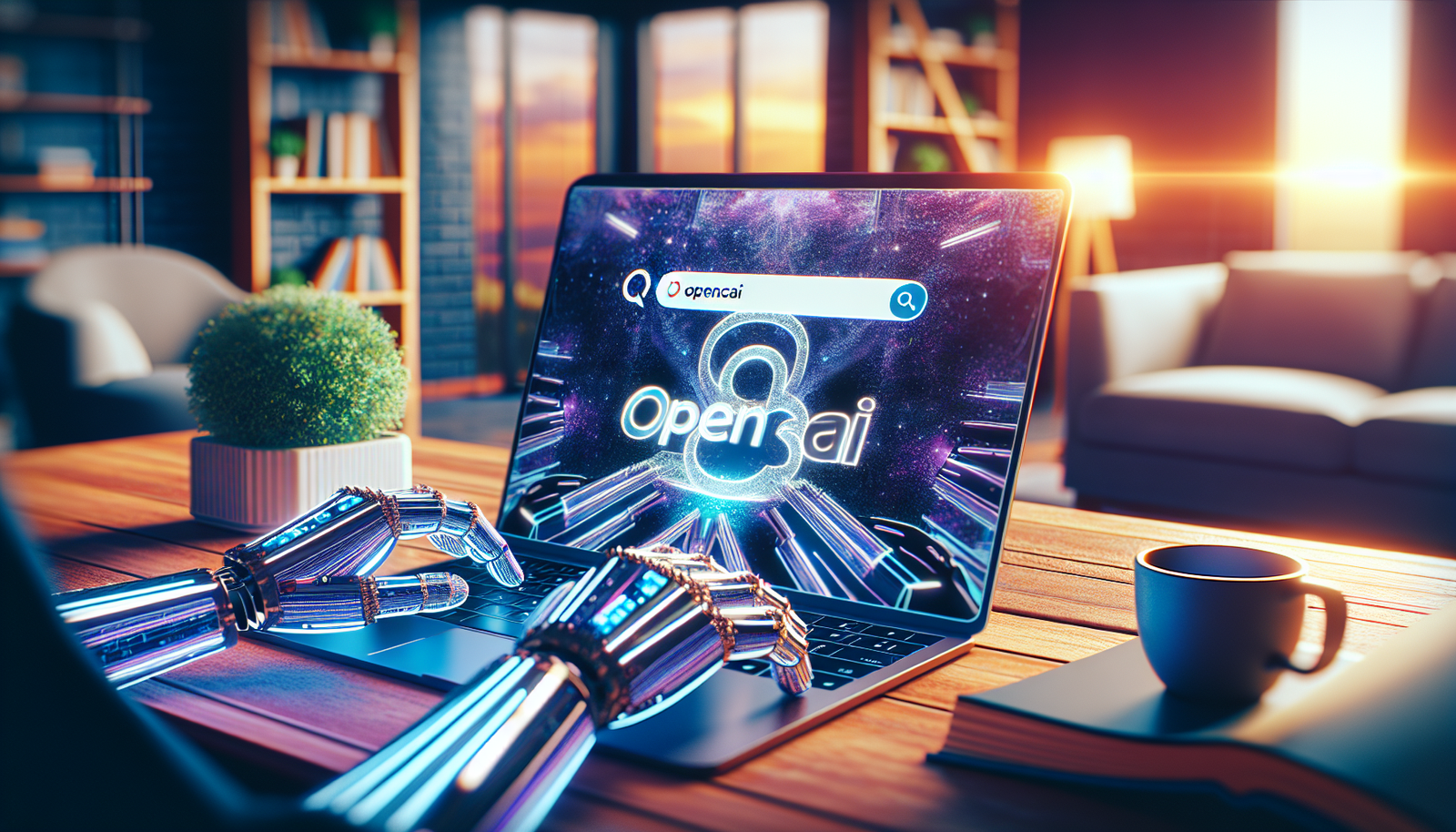OpenAI, boldly, launches its search engine integrated with ChatGPT, thereby transforming the user experience. *The conversational agent takes a new step* by providing updated answers based on recent data. *The feature disrupts the search engine landscape* by offering precise and contextualized information, competing with giants such as Google. *This innovation opens unparalleled perspectives* for information searching on the Web, optimizing the quality and relevance of the answers given to users.
OpenAI and Search Engine Innovation
OpenAI recently announced the launch of ChatGPT Search, a search engine integrated into its renowned conversational agent, ChatGPT. This development marks a turning point in how users interact with online queries. The search engine now allows ChatGPT to provide answers based on information recently published on the Internet.
Features of ChatGPT Search
The new search system is capable of answering questions on current topics, weather forecasts, or even restaurant reviews. Paying users of ChatGPT Plus and ChatGPT Team can now take advantage of this feature. In a few months, it will be available to everyone.
To ask a question, simply query ChatGPT with varied queries such as: “What will the weather be like this weekend?” or “Where to eat in Paris?”. However, it offers more than just a simple text answer. The Assistant also provides links to sources and, if necessary, visual elements, such as images or graphs.
A Direct Competitor to Traditional Search Engines
This initiative positions OpenAI as a direct competitor to industry giants such as Google and Bing. The latter have already integrated artificial intelligence solutions into their search engines. The integration of search capabilities into ChatGPT creates an attractive alternative for users seeking relevance and quick access to information.
Strategic Partnerships with Media
OpenAI has formed alliances with several renowned press publishers, including Le Monde, Time Magazine, and Wall Street Journal. These partnerships allow ChatGPT to leverage various media content to enrich its responses. The company assures that these sources will not be favored over others and guarantees some flexibility for publishers who do not wish to be among the sources used.
Despite these agreements, tensions exist between OpenAI and certain media organizations. The New York Times recently filed a lawsuit against OpenAI for copyright infringement, arguing that its content was used without consent.
Quality of Information and Oversight
The reliability of the results provided by this search engine will be scrutinized, particularly in the current political context, such as the upcoming U.S. presidential election. Chatbots, including ChatGPT, sometimes face issues of hallucination, where errors or incorrect information are produced.
Adam Fry, head of the new product, stated that OpenAI would pay particular attention to queries related to this crucial election. The quality of information remains a significant challenge for AI systems integrating a search function.
Overview of the Future of Artificial Intelligence
This advancement in search technology could disrupt the current digital landscape. ChatGPT Search fits into a strong competition among various artificial intelligence companies, which are seeking to enhance their users’ information access capabilities. Rival systems are not hesitating to innovate in order to maintain their market share and respond to consumer demands.
The implications of integrating search engines by artificial intelligence systems raise questions about the future of information access and relationships with content providers. Users must be vigilant regarding the quality of the answers provided and the transparency of the sources used.
Frequently Asked Questions about the ChatGPT Search Engine
What is the new ChatGPT search engine?
The ChatGPT search engine is an integrated feature that allows the conversational agent to access real-time information from the web, thus providing answers based on recent content.
How does the ChatGPT search engine work?
The search engine works by responding to user queries and automatically searching the web when necessary, analyzing the context of the questions asked.
Who can use the ChatGPT search engine?
Currently, this feature is accessible to paying users of ChatGPT, but it will be available to all in the coming months.
What types of questions can I ask ChatGPT with the search engine?
You can ask a wide variety of questions, including those related to current events, weather, sports results, and get recommendations on restaurants or events.
What sources of information will be used by the search engine?
ChatGPT will use information from various sources on the Internet, including content from partnerships with media, while respecting publishers’ preferences regarding their inclusion.
Does the ChatGPT search engine provide links to the sources used?
Yes, ChatGPT provides links to the sources of information used to formulate its answers, allowing users to check the information directly at the source.
Can ChatGPT make mistakes in its answers when I use the search engine?
Like any AI system, ChatGPT can occasionally produce errors or incorrect information, known as “hallucinations.” That is why OpenAI emphasizes the importance of validating the provided answers.
How does OpenAI ensure the quality of the results obtained with the search engine?
OpenAI focuses on the continuous improvement of its model, paying particular attention to important queries such as those related to major current events to ensure the accuracy of the answers.






